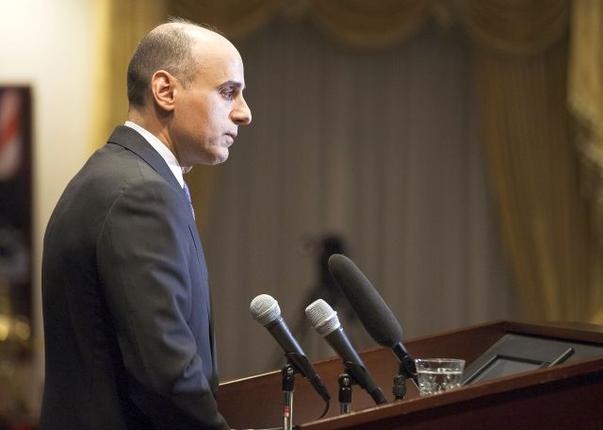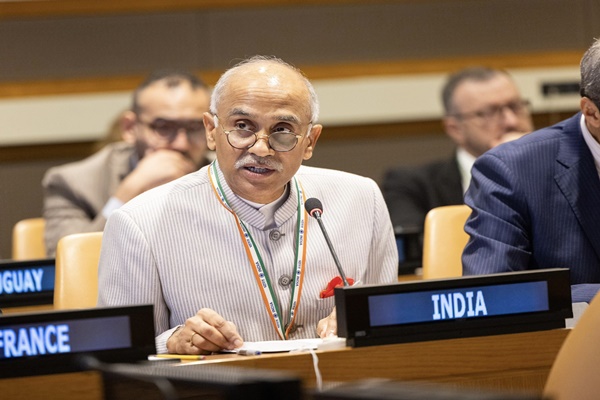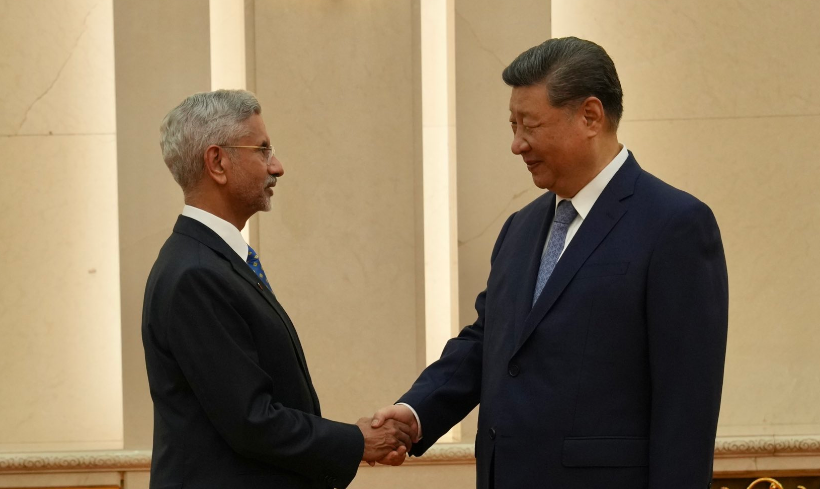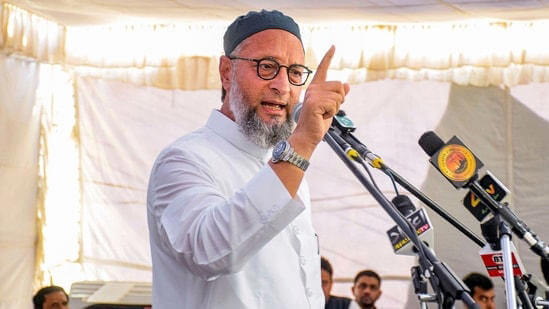Saudi Arabia begins Air Campaign in Yemen
Wed 25 Mar 2015

Washington, March 26, 2015 (Reuters) Saudi Arabia announced Wednesday night that it had begun military operations in Yemen, launching airstrikes in coordination with a coalition of 10 nations.
The strikes came as Yemen was hurtling closer to civil war after months of turmoil, as fighters and army units allied with the Houthi movement threatened to overrun the southern port of Aden, where the besieged president, Abed Rabbo Mansour Hadi, had gone into hiding.
Yemen shares a long border with Saudi Arabia, a major U.S. ally, and the Saudis had been reported to be massing forces on the Yemen frontier as Hadi's last redoubt in Aden looked increasingly imperiled.
The rapid advances by the president's opponents included the seizure of a military air base and an aerial assault on his home. There were unconfirmed reports that the president had fled the country by boat for Djibouti, the tiny Horn of Africa nation across the Gulf of Aden.
The region's most impoverished country, Yemen has been a central theater of the U.S. fight against al-Qaida, and its possible collapse presents complex challenges for the Obama administration as it struggles to deal with instability and radical extremism in the Middle East.
Along with Syria, Iraq and Libya, Yemen is the fourth state to veer toward political disintegration in the aftermath of the Arab Spring revolts that first erupted four years ago. By Wednesday morning, Houthi forces had seized Al Anad air base, which until recently had been used by U.S. counterterrorism forces, about 35 miles from Hadi's refuge in Aden, the country's second-largest city.
A television network under Houthi control said they had found the base empty and looted, and had captured two senior officers loyal to Hadi, including his defense minister.
A few hours later, Yemeni air force planes under Houthi control struck targets near the president's Aden home and his supporters returned fire with anti-aircraft guns.
The state television network, also controlled by Houthis, announced a $100,000 bounty for Hadi's arrest as rumors about his whereabouts swirled. By nightfall, there were reports that Houthi forces were fighting around the Aden airport, on the outskirts of the city.
A security official of Hadi's government confirmed the loss of Al Anad. Hadi's foreign minister, meanwhile, reiterated his calls for intervention by Saudi Arabia, Egypt and other Arab states to stop the Houthis, stoking fears that their advance could trigger a widening regional conflict.
The country appeared to be sliding toward a civil war as dangerous as any in the region, with elements of a sectarian feud, a regional proxy conflict, the attempted return of an ousted authoritarian and the expansion of anti-Western extremist groups like al-Qaida and the Islamic State eager to capitalize on the chaos. The Houthis, a minority religious group from northern Yemen, practice a variant of Shiite Islam and receive support from Iran.
But they are also collaborating with Yemeni security forces still loyal to former President Ali Abdullah Saleh, the longtime strongman who was pushed from power amid the Arab Spring uprising but now appears to be
orchestrating a comeback in alliance with the Houthis.
orchestrating a comeback in alliance with the Houthis.
With Saleh's help, the Houthis now control most of the Yemeni military, including its air force. That has given them a decisive advantage over Hadi's forces, as their seizure of the Al Anad base Wednesday made clear.
But their ability to control and govern their expanding territory remains far from clear, as does the potential pushback from Saudi Arabia and other regional powers.
"I would not be surprised if we see Aden falling to the Houthis tomorrow," said Ibrahim Sharqieh, deputy director of the Brookings Doha Center. "But that will just set the stage for a prolonged conflict or civil war, because the Houthis have not been able to maintain order even in the areas they have controlled since last year."
Hadi, the president, was installed as a replacement for Saleh in a transition brokered by Persian Gulf monarchies, and he has the backing of both Saudi Arabia and Washington. But he fled to Aden from the capital, Sanaa, after the Houthis captured it months ago.
He now appears to have retained the support and protection of only a small number of military units and some tribal groups based in the predominantly Sunni Muslim south.
As Hadi's opponents have cornered him, his supporters have escalated calls for Saudi Arabia, the other Persian Gulf states and Egypt to intervene to hold back the Houthis, portraying them as an arm of Iran.
At a news conference this week, Prince Saud Al-Faisal, the Saudi foreign minister, hinted at a possible intervention, saying Saudi Arabia "will take the necessary measures for this crisis to protect the region."
At the Arab League, officials said Wednesday that Yemen would top the agenda at a meeting this week of the Arab foreign ministers in Sharm el-Sheikh, Egypt.
But a spokesman for the Egyptian Foreign Ministry quickly dispelled rumors that Cairo had already agreed to intervention. "We have no idea at all about that," said the spokesman, Ambassador Badr Abdellatty.
Against the backdrop of the escalating conflict, Sunni Muslim extremists pledging allegiance to both al-Qaida and the Islamic State have been escalating their attacks, including sectarian assaults on the Houthis.
The Islamic State claimed responsibility for two bombings of Shiite mosques in Sanaa on Friday that killed more than 135 people. Al-Qaida's affiliate, al-Qaida in the Arabian Peninsula, already effectively controls pockets of southern Yemen beyond the reach of either Hadi or the Houthis.
The United States evacuated its military personnel from Al Anad several days ago, as fighters from al-Qaida's Yemeni affiliate moved closer from one side and Houthi fighters pushed closer from the other.
About 100 U.S. personnel, including Special Forces commandos, were reportedly stationed there before the evacuation.
Houthi leaders have said their drive to the south is a battle to root out the Islamic State and al-Qaida, portraying both groups as instruments of a broad international conspiracy including Israel, Saudi Arabia and the United States.
No Comments For This Post, Be first to write a Comment.
Most viewed from Specials
Most viewed from World
AIMIM News
Latest Urdu News
Most Viewed
May 26, 2020
Who will win The 2025 ICC Women's Cricket World Cup?
Latest Videos View All
Like Us
Home
About Us
Advertise With Us
All Polls
Epaper Archives
Privacy Policy
Contact Us
Download Etemaad App
© 2025 Etemaad Daily News, All Rights Reserved.













.jpg)
.jpg)
.jpg)
.jpg)
.jpg)
.jpg)
.jpg)
.jpg)
.jpg)

.jpg)
.jpg)












.jpg)
.jpg)
.jpg)


